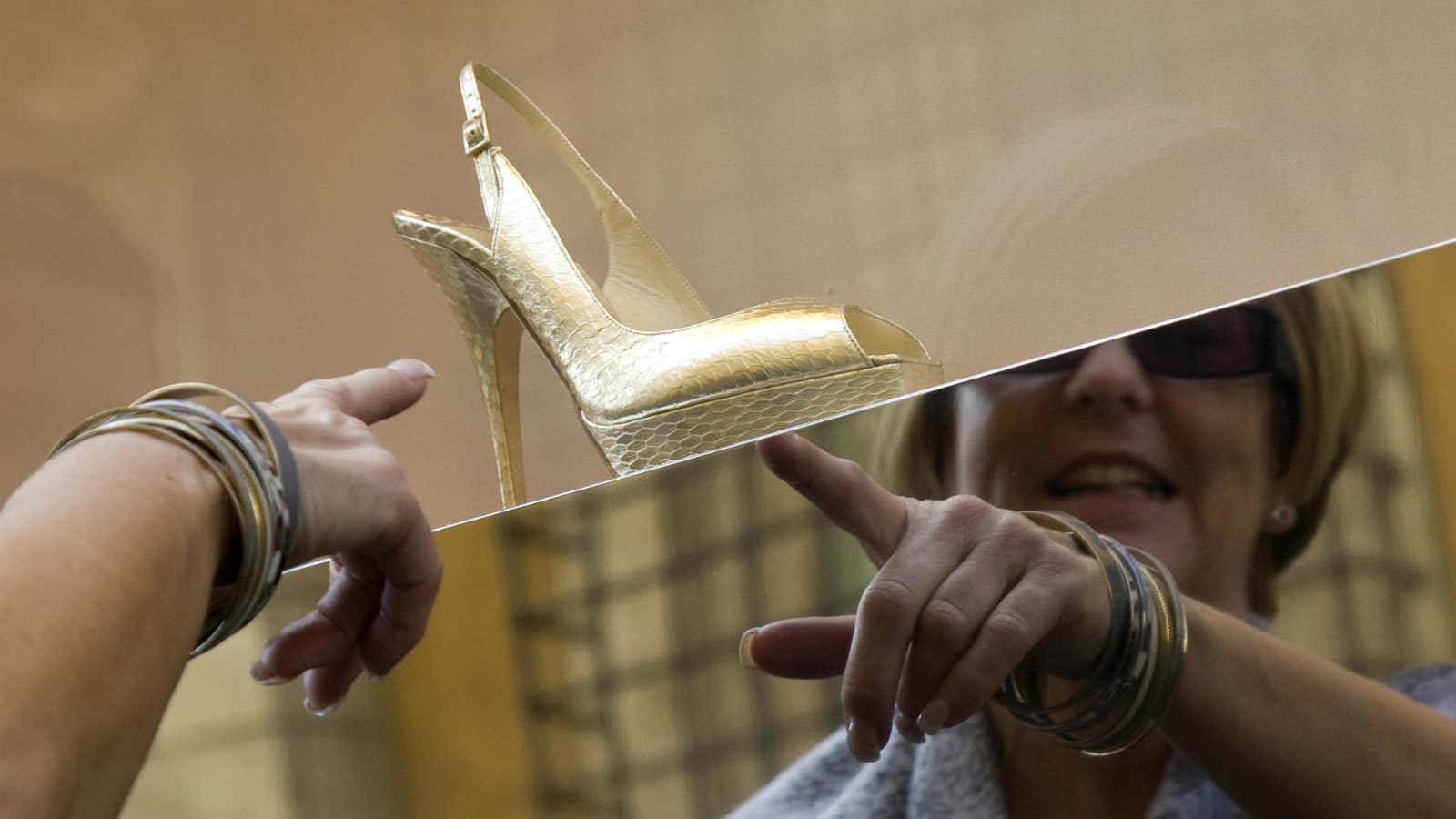For the most part the Brexit vote hasn’t been great for business—unless the business is making very expensive shoes. Jimmy Choo, the British luxury footwear brand, has seen its revenue for the first half of 2016 surge 9.2% from the same period last year. On a “constant currency basis” (which adjusts revenues to remove the pound’s drop against other currencies Jimmy Choo sells in), revenue increased only 3.8% (pdf).
Peter Harf, the company’s chairman, said the outlook for Jimmy Choo had “never looked better”. While the devaluation of the pound has helped make profits look better, part of the company’s success has been a move into men’s shoes. It’s the fastest-growing category of the business and now represents 8% of revenue, the company’s earnings report said.
Jimmy Choo’s latest annual report explains why it is moving into men’s fashion:
Men continue to become more hedonistic and opinionated on fashion matters and over recent years, there has been an increasing trend for male clients to purchase luxury fashion goods for themselves. We believe that the male segments of the luxury goods market, in particular luxury shoes, remain underrepresented by leading luxury brands.
This plan is paying off. Total revenue for the first half of 2016 was £173 million. Operating profit rose to £25 million, from £18 million in the first half of 2015.
Post-Brexit Britain is turning into a bright spot for makers of luxury goods. The country has become the cheapest market for high-end fashion since the UK voted to leave the European Union. Exports of Swiss watches to the UK jumped 13% in July, the only region where exports increased. In July, retail sales increased 1.4%, defying economists’ expectations that consumers would close their wallets amid the uncertainty of the EU referendum result.
